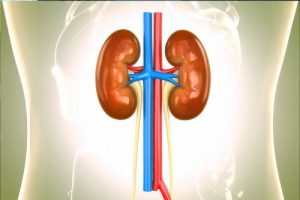According to a recent study, People living with HIV have a significantly elevated risk of Chronic Obstructive Pulmonary Disease (COPD) and coughs, heart disease, pregnancy mortality and sepsis, anemia and bone fractures.
The Study, published in the journal Clinical Infectious Diseases, The umbrella review, led by academics from Anglia Ruskin University (ARU) in Cambridge and the Medical University of Vienna, combined data from 20 separate observational studies and examined 55 different illnesses.
As per the Researchers remarked, people living with HIV are at an increased risk of contracting specific diseases and illnesses, some of which are more commonly associated with ageing.
Meanwhile, “By pooling data from different studies, we have been able to show for the first time that even with the rise in life expectancy amongst people living with HIV, this population now seems to be disproportionately affected by chronic illnesses often attributable to lifestyle issues such as smoking, drug and alcohol use or more commonly associated with an older population,” asserted study researcher Lee Smith from Anglia Ruskin University in the United Kingdom.
Senior author Dr Lee Smith, Reader in Physical Activity and Public Health at Anglia Ruskin University (ARU) mentioned that, “There has been a major shift in how we view HIV. It is no longer a death sentence but rather a manageable chronic illness”.
Although the number of people contracting HIV is declining, approximately 1.8 million people are infected every year and HIV remains one of the world’s major health issues.
In recent years, people with HIV have benefited from improved access to antiretroviral treatment. However, increased life expectancy and a lower immunity has meant higher levels of comorbidity, with people living with HIV also more likely to suffer from other illnesses, The study stated.
The greater prevalence of age-associated diseases may be explained by the persistent immunodeficiency and inflammation connected with HIV. There are also adverse effects associated with antiretroviral treatment.
Despite this, the elevated risk levels highlighted in our study should hopefully lead to further research to improve both the prevention and early detection of these comorbidities in people living with HIV. Public health bodies worldwide should reflect on these findings, Study said.
(With the Inputs of Anglia Ruskin University (ARU) in Cambridge and the Medical University of Vienna, Contributed here by YD’s CEO, Trilok Singh).
Reference:
- Igor Grabovac, Nicola Veronese, Sinisa Stefanac, Sandra Haider, Sarah E Jackson, Ai Koyanagi, Michael Meilinger, Brendon Stubbs, Joseph Firth, Pinar Soysal, Francesco Di Gennaro, Jacopo Demurtas, Daragh T McDermott, Adam D Abbs, Lin Yang, Lee Smith. Human Immunodeficiency Virus Infection and Diverse Physical Health Outcomes: An Umbrella Review of Meta-analyses of Observational Studies. Clinical Infectious Diseases, 2019; DOI: 10.1093/cid/ciz539
























